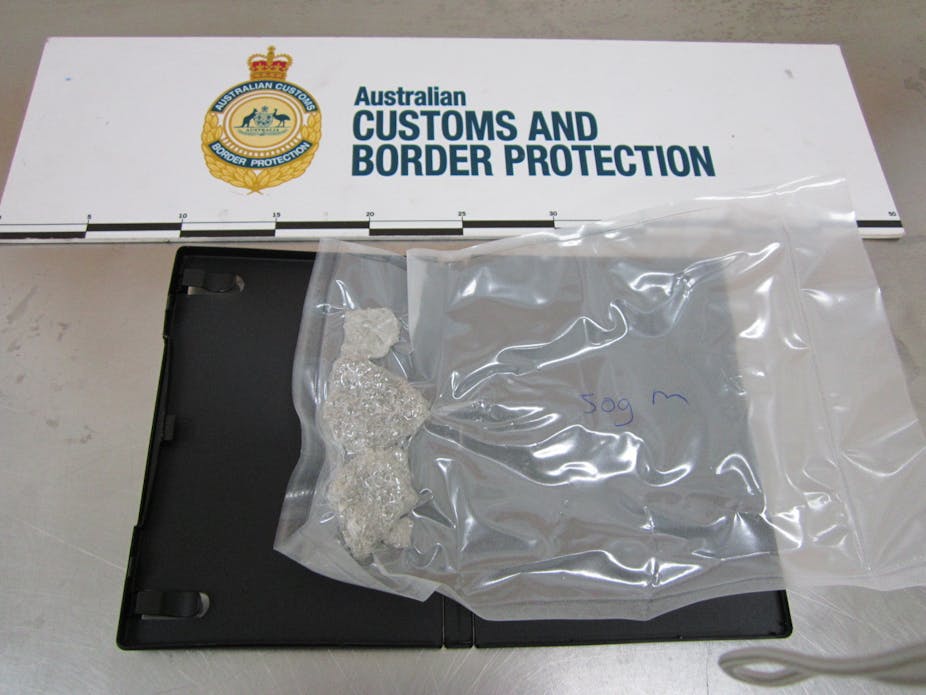In October 2013, US authorities shut down Silk Road, the world’s largest cryptomarket. At the time, prosecutors claimed that the closure of the so-called “eBay of illicit drugs” represented the beginning of the end for online drug distribution.
This assertion has since proved incorrect. Over the past ten months, drug trading on the “dark net” has recovered rapidly. It is now estimated to be at least twice the level it was at the height of Silk Road’s popularity.
A new generation of cryptomarkets is supplying the expanding online drug trade. They are populated by thousands of dealers who use digital encryption to communicate with clients, spruik their wares and conduct illicit transactions.
For dealers, selling drugs online offers significant advantages over face-to-face retailing. They have immediate access to a huge and steadily growing international customer base. They are also able to sell drugs without physically interacting with customers, thereby decreasing the risk of arrest by undercover police.
Perhaps most importantly, the anonymity and geographical separation of online drug trading eliminates the possibility of violence at the hands of rival dealers. This differs significantly from the conventional drug trade where organised crime groups use serious, often lethal force to eliminate competitors and establish control over drug-retailing territory and trafficking routes.
The inability of dealers to use violence is one of the most striking and potentially socially beneficial implications associated with the rise of the online drug trade. It also raises an intriguing question: how do drug dealers compete with one another when violence and intimidation are no longer viable options?
Customer feedback plays a crucial role in regulating online drug markets. As is the case with legitimate trading websites such as eBay or Amazon Market, all customers who purchase drugs via a cryptomarket are encouraged to leave feedback about the quality of goods received and the level of service provided by particular dealers.
This information takes the form of a rating out of five stars, as well as more detailed comments regarding the speed of delivery and the sophistication of “stealth” measures used to conceal drugs in the post.
Critically, dealers are unable to alter the feedback that their customers upload. This means that both positive and negative reviews are permanently recorded on a dealer’s publicly listed “seller page”.
Feedback therefore provides prospective customers with an objective indication of the dealer’s past reliability and the perceived quality of the drugs they have sold. Research indicates that this information is central to consumer decision-making when considering an online drug purchase.
The importance of maintaining a blemish-free reputation means that online dealers are often highly conscientious in cultivating positive relationships with their customers. Top-ranked dealers (those who have attracted the greatest levels of positive customer feedback) regularly communicate with their clients using rhetoric more familiar in the world of conventional corporate retailing.
Understand that your Feedback is the foundation of our business … If you have ANY problems, please contact us before giving us a bad rating. In 99% of the cases we are able to satisfy you! Please leave also your honest feedback, to help following buyers get an opinion about us :)
– Excerpt from seller page – Tormarket, accessed December 11, 2013
Online drug vendors typically employ a range of corporate retailing techniques. This includes providing mission statements, “oaths to customers” and detailed “terms and conditions” advising international shipping times and purchasing procedures. In a further stark contrast to the conventional drug trade, many even offer full or partial refunds for drugs that are found to be sub-standard or are intercepted by customs.
Managing the expectations of existing customers is only part of the challenge for dealers operating in this new, hyper-competitive online environment. They must also create innovative marketing strategies to attract new customers.
Commonly used methods are bulk purchasing discounts, loyalty programs and periodic promotional campaigns on holidays such as New Year’s Eve and “International Pot Day”. Other gimmicks include “two-for-one” specials, lottery giveaways and free drug samples.

Even more intriguing is the use of marketing strategies that mimic corporate social responsibility initiatives. These may take the form of financial sponsorship of organisations likely to be viewed favourably by online drug consumers. For example, one Australian drug vendor recently advertised their enterprise as a:
Proud financial supporter of WikiLeaks and Bluelight.
At the more extreme end of socially progressive marketing strategies used by online dealers are those that involve the promotion of drugs on the basis of supposedly “ethical”, “fair trade”, “organic” or “conflict-free” sources of supply.
We are a team of libertarian cocaine dealers. We never buy coke from cartels! We never buy coke from police! We help farmers from Peru, Bolivia and some chemistry students in Brazil, Paraguay and Argentina. We do fair trade!
– Excerpt from seller page – Evolution, accessed December 28, 2013
This is the best opium you will try, by purchasing this you are supporting local farmers in the hills of Guatemala and you are not financing violent drug cartels.
– Excerpt from seller page – Evolution, accessed March 28, 2014
Naturally, it is impossible to verify these claims. It seems unlikely that such descriptions are accurate given the myriad problems that exist certifying similar schemes in the conventional economy. However, the fact that online dealers are employing these strategies points to the creation of an increasingly gentrified online drug trade.
This digital alternative to street-based drug retailing rewards dealers for using innovative and non-violent methods of competition, and for providing quality goods and services. Drug consumers, meanwhile, are offered an unprecedented range of choice and information about products available. They are also treated with a civility that reflects their purchasing power.
While there remain serious dangers inherent to buying illicit drugs online, including the risk of lethal product adulteration, the rise of cryptomarket-facilitated drug trading presents a range of advantages over the violence and exploitation associated with the conventional drug trade.
Drugs on the Dark Net is out now from Palgrave Macmillan.

